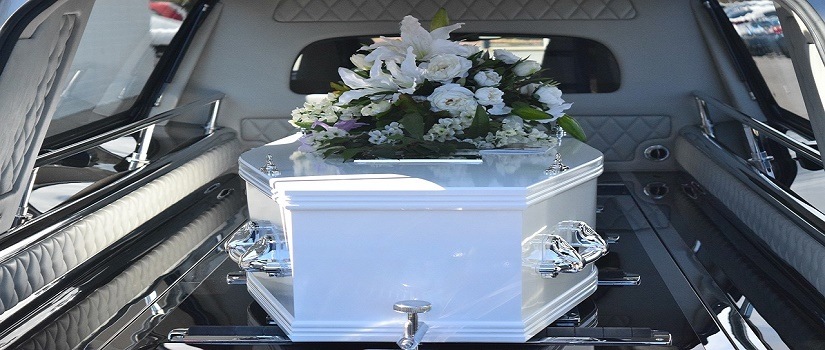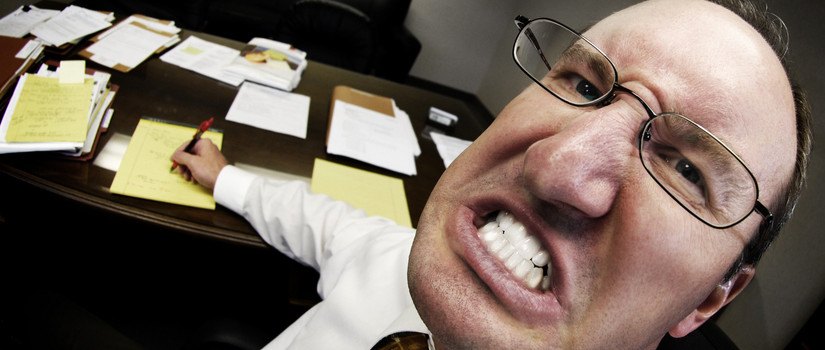What Happens When You Die?
1 Thessalonians 4:13-18
The apostle Paul addresses the question, what is the fate of those who die “in Christ” before He returns?
The believers in the Greek city of Thessalonica knew that Jesus has risen from the dead and alive and that He would return. They had been taught to expect Christ to come as an unexpected thief from heaven. His resurrection from the dead was a prelude to the resurrection of His people.
It would appear that some of the believers had died recently and some members in the church were wondering if those who had “died in Christ” would miss out on some participation in the glory at His appearing.
Death is a fact of life. Death is not an accident; it is an appointment. We all have an appointment with the death angel. “It is appointed unto men to die, but after this the judgment” (Hebrews 9:27).
The Gospel of Jesus Christ brings hope to those who believe in Christ as opposed to those who are without God and without hope. The pagans were hopeless in the face of death. How tragic when Christians do not place their faith in the hope of this Gospel as an inward living conviction. The hope of the resurrection is based on the assurance that Jesus died and rose from the dead. We also have the witness of the Holy Spirit (Romans 8:11) and the indwelling Christ (Colossians 1:27).
F. F. Bruce suggests that the apostle Paul had already taught these Thessalonian believers the basic truths regarding Christ’s return including the following points:
This tradition speaks of the coming of the Lord as His Parousia (cf. Matthew 23:3, 27, 37, 39; 1 Thess. 2:19; 3:13; 5:23; 2 Thess. 2: 1, 8) and represents it as taking place from or in heaven (cf. 1:10; 2 Thess. 1:7; Matt. 24:30), with clouds (cf. Matt. 24:30; Rev. 1:7), accompanied by angels (cf. 3:13; 2 Thess. 1:7; Matt. 24:31) and announcement by a trumpet blast (cf. Matt. 24:31; 1 Corinthians 15:52). . . the manifestation of power and glory and the execution of judgment on the ungodly (5:3; 2 Thess. 1:7-10; 2:8) (Thessalonians, p. 95).
Believers in the early church had a daily expectation that Christ would return. They did not set any dates for the return of Christ, but they were looking for His return in their lifetime. There was the daily expectancy of His return. They were looking for Christ to come any moment and take them home to glory with Him, not in death, but in a visible personal coming for Christians. They were looking for Christ to come and take them home to glory without dying.
John Walvoord has a good summary of our hope as believers. He writes, “A Christian has a wonderful hope that after this life there is going to be a glorious, unending existence in the presence of God with all the joy and ecstasy that will be ours when we are joined to Christ and with our loved ones in Christ who have gone on before us.” We are therefore not like those who have no God and no hope.
It is important to keep in mind that nothing is said here of the resurrection of those who are not in Christ. We find that in other passages such as Acts 24:15; John 5:28, 29.
“On Paul’s principles, any resurrection of unbelievers would be different in character from the resurrection of believers. The resurrection of believers was their participation in Christ’s resurrection, and this could not be said of the resurrection of unbelievers. It is precarious to draw inferences from Paul’s silence about his views on the nature and timing of the resurrection of those not in Christ” (Bruce, p. 105).
Neither is Paul concerned in this passage about when Christ will come.
Paul’s resurrection hope is grounded in the saving work of Christ. Since Paul does not know when Christ will return he, therefore, does not know if he will be alive or not when it actually takes place. However, he does know that he will be a part of that grand event. This is what matters to Paul. Paul did not have any problem with the “delay of the parousia.” His conviction was simply Christ is coming again, maybe morning, maybe noon, maybe evening, but surely it will be soon. Christ is coming again and that should give us great comfort (John 5:24; 6:50-58; 8:51; 10:28; 11:25, 26; Romans 8:1, 38, 39; Philippians 1:19-21; 2 Corinthians 5:8; 2 Timothy 4:6-8; Psalms 23:4).
The believer in Christ already has eternal life; and by his departure from this earth, he takes possession of it in a greater measure. Even his body will be raised up at the last day. Why, therefore, fear an experience that simply brings us closer to our Lord and Savior Jesus Christ? Death is gain for the Christian because it brings us into the presence of Christ.
Every since His resurrection and ascension Jesus has taken with Him into heaven the believers who have died. The children of God are brought at the very instant of their death into the presence of the Lord. The apostle Paul declared that when a Christian dies he is “absent from the body” and “present with the Lord.” This gives the Christian hope when our loved ones are taken away from us in death. There is no hope in the future life apart from a saving relationship with Jesus Christ.
Chuck Swindoll gives us a word of caution worth heeding on this important subject:
For centuries, thoughtless fanatics have littered the path of Christianity––especially those who have earned the label “prophecy freaks.” Most of them have been well-intentioned, highly intense souls who have found it almost impossible to retain their equilibrium with the subject of the future. As a consequence, they have left in their wake messes of tragic proportion, the worst of which has been the reactionary fallout. These fanatics have consistently turned scores of people away from the Bible’s prophetic program, many people have reacted by discounting and even scoffing at the biblical picture of the future. Christians today need to take a sane and sober reexamination of God’s plan for the events yet to come” (Contagious Christianity, A Study Guide of First Thessalonians, p. 44).
The emphasis the apostle is making in our text is a message of hope. “For the believer who arrives victoriously to the port, there is nothing more to worry about: the battle is won, and he is at the entrance to glory. What Christian, about to depart into the presence of his God, would prefer to begin his life’s course down here all over again? And who would want to call back a loved one who has just entered into the presence of the Lord” (Rene Pache, The Future Life, p. 45).
This hope of eternal life will sustain us until that moment when all tears shall be wiped away from our eyes. “What joy to think that if we sincerely seek to live in His will, nothing can come to us, outside the time and plan foreseen by God for us!” The death of a believer in Christ is not a permanent loss, but a temporary separation until we are all gathered into the presence of our Lord. This grand reunion at Christ’s return will rob death of its sting (1 Cor. 15:54-58). These words give us a confident hope in anticipation of a future promise by the Lord.
The Lord Jesus Christ will come; it is only a question of when. We do not know when therefore it is essential that we are prepared. Will there be any disadvantage for the believers who have died in Christ before the rapture? Will they be disqualified from sharing in the glory of that day perhaps because they have sinned in some way? Let’s listen carefully to Paul’s response.
THE PROBLEM OF NOT KNOWING ABOUT THOSE WHO ARE DEAD “IN CHRIST” (4:13-15)
What happens to believers who die before Christ returns for them? What is going to happen to our loved ones who have preceded us in death?
Perhaps they were thinking Christ would come in their lifetime. Now some of their own family and friends had died since Paul had been there preaching and instructing them. What would be the effects of their premature death at the coming of Christ? Would it be detrimental to their spiritual life? They were quite concerned for their loved ones. Was their death because they were under the wrath of God? Were they being punished for some sin?
The revelation of God is accurate (v. 13)
“But we do not want you to be uninformed, brethren, about those who are asleep, so that you will not grieve as do the rest who have no hope” (v. 13)
When Paul says, “we do not want you to be ignorant,” he is stating in an emphatic way, “we wish you to know.” It is something very important that Paul wants to emphasize. They need to be aware of this important fact. In verse fifteen he says, “For this, we say to you by the word of the Lord” giving emphasis to the authority of God’s Word. God has spoken; we need to listen.
Therefore, why substitute human speculation for divine revelation on such an important subject? We have a pure revelation from God in His Word. We do not have to turn to philosophers, spiritualists, or humanism or the occult for answers to the problem of life and death.
Paul will lay aside their fears with a strong affirmation, “by the word of the Lord.” Paul is probably referring to a saying of Christ that is not recorded by the four evangelists in their gospels. There were many sayings of Christ not recorded for us. He could also be referring to a direct revelation from Christ regarding the Second Coming.
Here the important subject is the “lot of the faithful departed at the Parousia.” These believers still had questions about the fate of their loved ones who had died since Paul had been there and taught them.
Who are those who “are asleep?” The verb koimaomai is in the present tense indicating they continue to sleep. “They are lying asleep.” “Sleep” is a beautiful euphemism for “death.” The Old Testament writers used the idiom “slept with one’s fathers.” For the Christian, it expresses the view that “as a sleep from which one would awake to resurrection life.” However, for the pagans in Paul’s day death was a “sleep from which there would be no awakening.” Death is the opposite of life, but nowhere do the Scriptures state that men will cease to exist.
We get our English word cemetery from koimeterion. The koimeterion here are deceased Christians, probably members of the church at Thessalonica. They could even be martyrs who died giving witness to Christ in Thessalonica.
Paul does not want them to be ignorant about the death of believers and therefore sorrow as the pagans who have no hope in the resurrection of Christ. Those who are without God and without hope can do nothing in the face of death but pity one another. The Christian hope is grounded in the historical resurrection and ascension of Christ.
Christ has transformed death. Death has been overcome by the risen Lord Jesus. It is never said that Christ is “asleep” meaning He is dead, though He is the “first fruits of them that have fallen asleep” (1 Cor. 15:20). Jesus Christ is awake! He is alive, not dead.
These deceased believers were with the Lord spiritually (2 Cor. 5:6-8; Phil. 1:20-24), but their bodies were physically “asleep” in the earth. Paul made it very clear that the soul of the believers went to be with the Lord. It is not the soul that sleeps; it is the body. The spirit leaves the body at death, and the body goes to sleep and no longer functions. When Christ resurrects our bodies the decay, disease, and weakness that plague our bodies now will be stripped away. When He comes we will have Christ-like bodies (1 Cor. 15:50-55; I John 3:2).
Therefore, we do not sorrow as those who have no hope in the resurrection of Christ. For the unbeliever, it is an unending sorrow. It is a continuing sorrow. It is an absence of the knowledge of the Lord that leads to this hopelessness. Cf. Eph. 2:12.
Leon Morris observes, “Few things are more impressive in the contrast between early Christianity and the surrounding pagan systems than their attitudes in the face of death.” Very few pagans had a lofty view of death. The typical attitude of the ancient world to death was one of utter hopelessness.” They had no consolation to offer. Milligan said, “The general hopelessness of the pagan world in the presence of death is almost too well known to require illustration.”
The apostle Paul is not counseling stoicism or callous indifference. Without the hope of the resurrection of Christ people must view death only as a sleep from which there is no awakening. Catullus, a pagan wrote, “Suns may set and rise again but we, when once our brief light goes down, must sleep an endless night.” Without the resurrection, it is “one unending night to be slept through” (Catullus), or “one unbroken night of sleep” (Aeschylus). Without the living hope of Christianity, there is only “hope for the living, the dead are without hope.” What a difference the resurrected Christ makes upon the living and the dead. The Christian hope is in the person of Jesus Christ.
1 Corinthians 15:55 and Philippians 1:21-23 are refrains of victory, not hopelessness. There is no reason for despair for the believer.
“Precious in the sight of the Lord is the death of His saints,” wrote the Hebrew Psalmist. Paul is rejoicing in a complete victory which Christ won for us in His resurrection. “Those who have died have simply fallen asleep in Christ, and they will awake with Him” (Morris).
The anxiety of the believers for the dead loved ones is put to rest by the strong affirmation made on the authority of the risen Lord Himself that when He comes “the dead in Christ” will be raised first and then those who have not died but remain alive will be snatched away with them to join their Lord and be with Him forever. Both those who are alive and those who have died will fully share in the experiences of that blessed event. Neither will suffer any disadvantage when Christ comes.
W. E. Vine says, “The object of the metaphor is to suggest that as the sleeper does not cease to exist while his body sleeps, so the dead person continues to exist despite his absence from the region in which those who remain can communicate with him, and that, as sleep is known to be temporary, so the death of the body will be found to be. Sleep has its waking, death will have its resurrection” (Thessalonians, p. 128).
The body alone is in view in this metaphor, never the soul. Also in the New Testament, the resurrection is used of the body alone.
What happens at the death of the believer?
“When the physical frame of the Christian, ‘the earthly house of our tabernacle,’ 2 Cor. 5:1, is dissolved and returns to the dust, the spiritual part of his highly complex being, the seat of personality, departs to be with Christ, Phil. 1:23. And since that state in which the believer, absent from the body, is at home with the Lord, 2 Cor. 5:6-9, is described as ‘very far better’ than the present state of joy in communion with God and of happy activity in His service. . . . it is not intended to convey the idea that the spirit is unconscious” (Vine, pp. 128-29).
The victory will be complete when we receive our resurrected body (1 Cor. 15:54-57).
The resurrection of unbelievers (John 5:28-29) cannot be described as a hope. They are not “in Christ” and therefore are without God and without hope. The pagan Lucretius said, “No one awakes and arises who has once been overtaken by the chilling end of life.” How sad, but true.
Return of Christ is sure (vv. 14-15)
“For if we believe that Jesus died and rose again, even so, God will bring with Him those who have fallen asleep in Jesus. For this, we say to you by the word of the Lord, that we who are alive and remain until the coming of the Lord, will not precede those who have fallen asleep” (vv. 14-15).
Since Christ died and rose again
The words “if we believe” state a fulfilled condition. A better English translation would be “since we believe.” Paul’s statement is beyond dispute. The reference to their believing points to the certainty of their faith.
Christ is never said to be sleeping. He died and after His death, He bore the wages of sins. He died the worst death possible. Death has not been finalized in His case, however. He is alive. He is awake! Jesus took away the horror of death for the Christians. It is because Jesus died that we no longer need to fear death.
The resurrection of Jesus Christ separates Christians from all other world religions. Just as God raised Christ, so in due time He will raise all those who are in Christ. The resurrection of Christ is our guarantee of eternal life.
As 1 Corinthians 15:17 tells us the resurrection of Christ is the critical issue upon which Christianity rises or falls. Paul states, “If Christ has not been raised, your faith is worthless; you are still in your sins.” Jesus is the “first fruits of them that are asleep” (1 Cor. 15:20). The implication of these first fruits is there will be later fruit. Just as Christ has risen and is alive we can rest assured that we, too, will rise from the dead (15:22; Col. 1:18).
Because of what Christ has done the Christian “sleeps” and does not undergo the horrors of the second death which is eternal separation from God in hell. Death is the consequence of sin. Jesus suffered a death that we can never experience. He experienced the full wages of sin as our substitute dying in our place bearing the full punishment of our sins.
“God will bring with Him those who have fallen asleep in Jesus.”
Literally, Paul writes, “God them that fell asleep through Jesus will bring with Him.” The word “God” is at the beginning of the sentence in the place of emphasis. God will bring with Jesus those who have fallen asleep in Christ. Their faith is in God who raised Jesus from the dead and who will also raise believers in Christ.
The apostle Paul has in mind the Parousia. Jesus will bring with Him the faithful believers when He returns. Their death does not mean they will not share in His coming. Paul is certain the event will take place.
“Death,” says Vine, “when used of man, and not merely of his body, may be defined as conscious existence in separation from God. All out of Christ are dead, all in Christ live or have eternal life, Jn. 6:47; Col. 3:4. But all, whether living or dead, equally exist and are equally conscious of existence (cf. Luke 16:19-31)” (Thessalonians, p. 134).
1 Corinthians 6:14; 2 Cor. 4:14; Rom. 6:3-8 all emphasize the same truth that just as God raised up Jesus He will also raise the believer in Christ. Through the risen, Christ God will bring with Him those who have fallen asleep. If Christ has not risen then those who have fallen asleep in Christ have perished (1 Cor. 15:17-18).
Milligan notes, Jesus is “the mediating link between His people’s sleep and their resurrection at the hands of God.” Note the attendant circumstances of their death. “They were in a certain relationship with the risen and living Jesus when they died.” They were as the New English Bible reads, “those who died as Christians.” They died in fellowship with Christ. They died as believers in Christ.
The place we must begin is at the cross of Christ. Jesus Christ died for our sins and it is there that we had a substitute who died in our place as a sufficient sacrifice for our sin. The stamp of certainty of our salvation is the fact that Christ rose from the dead. Our ground of hope is the reality that Christ died for us and rose from the dead. We have no Christian hope unless we are absolutely certain concerning the death and resurrection of Christ.
“The resurrection of Jesus is the effect of the direct exercise of the power of God (1 Cor. 6:14; Eph. 1:20” (Vine). When used in a literal sense the resurrection always refers to the body.
It is those who have “fallen asleep in Jesus” that He will bring back with Him. This “sleep” in verse fourteen refers to the bodies which are laid in the grave. John Walvoord correctly states, “As far as our souls and spirits are concerned, we go immediately into the presence of God, into the conscious enjoyments of heaven, for ‘to be absent from the body’ is ‘to be present with the Lord.’ We believe in the sleep of the body, but we do not believe in the sleep of the soul. Those whose bodies are sleeping in the grave, according to this Scripture, will be resurrected when Christ comes back” (Thessalonians, p. 62). Therefore, “Our loved ones who are asleep through Jesus go to sleep in the certain hope of waking.”
Paul’s formula is simply “since we believe”––“we also believe.” Since we believe Jesus rose from the dead we also believe we, too, shall rise from the dead. The same gospel that gives us the great assurance of the death and resurrection of our Lord also gives us the great assurance of the resurrection of all who believe in Christ. His resurrection is the pledge of our resurrection (1 Cor. 6:14; 15:16, 20).
Believers are never said to be “in Jesus,” but always “in Christ” expressing intimacy in our relationship with the risen Lord.
The Gospel message is that “Jesus died and rose” (1 Cor. 15:3-4). Note that Christ is not asleep. He is nowhere said to have “fallen asleep” because of the mention of the resurrection which follows immediately. Christ “died” stressing the full impact of His death and therefore the divine miracle of His resurrection.
Since God acted in the past to raise Jesus from the dead He can be depended upon to “bring with Him those who have fallen asleep.” Cf. 1 Cor. 15:23; Acts 3:15; Rom. 8:11; 2 Cor. 13:4; Eph. 1:20; Col. 2:12; 2 Cor. 1:9).
We now “sleep” and will “awake” only because Jesus endured the full fury of God’s wrath against sin (Rom. 6:23). He has spared us of the “wages of sin” which is spiritual death and eternal separation from God in hell. Our death has been swallowed up in His victory through His death and resurrection (1 Cor. 15:54).
We do not have an advantage over the deceased
“For this, we say to you by the word of the Lord, that we who are alive and remain until the coming of the Lord, will not precede those who have fallen asleep” (v. 15).
The Thessalonian believers were worried that their deceased loved ones would not share in the Parousia. They were longing for the coming of Christ. That is the characteristic attitude of believers in every generation. They were not afraid of death which may come first. Paul sometimes associates himself with those who are waiting for Christ’s coming and at other times with the dead in Christ. He is comfortable with both possibilities. He looked forward to and expected the Parousia of the Lord Jesus. He prepares us for unflinching courage in the face of death.
“Shall not precede those who have fallen asleep”
The word for “precede” or “prevent” is variously translated “gain an advantage over,” “precede into His presence,” “or have any advantage at all over” or “shall not come before.” The word phthano implies both the gaining of an advantage as well as priority in order. There will not be any advantage or disadvantages because we will all be full participants along with all believers in Christ. Neither will miss a moment of glory in His coming on that day. The living will not have the advantage, “to come before” another. Paul uses a strong double negative in the original, ou me to mark his emphasis.
The important thing Paul is stressing is that those who are alive when Christ returns will not have any advantage over those who have already died in Christ. Paul underscores his point by saying emphatically “in no wise.” Believers who die will be at no disadvantage when Christ comes.
On the other hand, Paul says those who are living and who survive to the day of Christ will not be at an advantage over the dead in Christ. Probably Paul did expect to be alive but as Denny says, “It is easy to state the inference too strongly.” Paul expressly states that he does not know when Christ will come. It is only natural for Paul and us to put ourselves in the category of those who will be alive to see it happen. One vital thing is sure. I am not going to be left out! The important thing is that we are ready when He comes. His coming will be unexpected, just when we least expect Him He will appear.
By the time Second Corinthians was written Paul definitely associated himself with those who would die before the Parousia and would have to be raised from the dead (2 Cor. 4:14).What will be the effect on those who have already died? Will they suffer any disadvantage at the Parousia because they have already died? What is the relation between the resurrection of the dead in Christ and His coming? Will they miss out on something that the living will enjoy? The main point Paul is stressing is no, they will not suffer any disadvantage when Christ comes.
At the Parousia, the believing dead will be raised up before the translation of the living believers. The living and the dead will be on equal footing for the reason set out in the verses that follow. There is no ground for uneasiness about the “dead in Christ.” In the verses that follow Paul gives us the order of events.
THE PLAN FOR ALL WHO ARE “IN CHRIST” (4:16-17)
Return of Christ from heaven (v. 16a)
Jesus is seated at the right hand of God the Father in heaven (Rom. 8:34; Eph. 1:20; Col. 3:1; Heb. 1:3).
No one knows the time when Christ will return except God the Father (Acts 1:6-7). Fanatics never pay attention to that fact.
Paul writes, “For the Lord, Himself will descend from heaven with a shout, with the voice of the archangel and with the trumpet of God, and the dead in Christ will rise first.”
The manifestations of divine glory in the Old Testament are associated with the Advent of Christ. The Parousia is an answer to Isaiah’s cry in 64:1, “O that Thou would rend the heavens and come down.”









